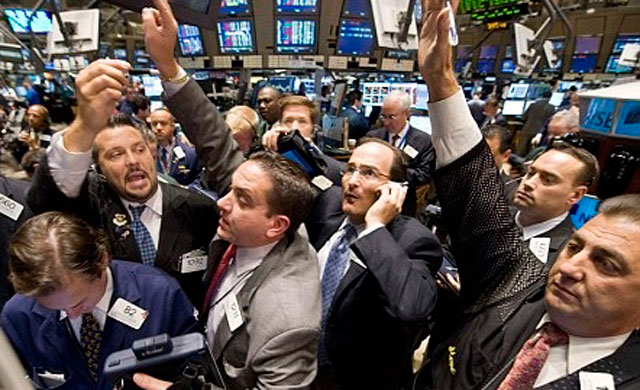City traders have a unique set of skills and strategies that they use to succeed in the fast-paced world of finance. If you’re looking to up your game as a city trader or are just getting started in this field, then read on! In this blog post, you’ll learn 12 strategies that will help you achieve success in this competitive area.

The day to day work of a city trader involves making quick decisions to buy and sell stocks, commodities, currencies, or other financial instruments. City traders are responsible for executing trades in response to current market conditions, anticipating future price movements, and ensuring that their trades are profitable for the firm.
Trading is a high pressure, high risk, but high reward job. Whether you’re just getting started in the field, or have been doing it for a few years, you’ll always be looking to retain your competitive edge, and do as well as you can for your clients. After all, if you invest well for your clients, you’ll also see financial rewards.
So what strategies do you need to follow in order to succeed as a city trader?
1. Nail The Basics
To thrive in this field, you need to make sure your knowledge of everything around trading is absolutely excellent. You should know everything about your field, including What is Macro Trading? and What is Risk Arbitrage?. If you know the theory, terminology and background to everything related to trading, you’ll have a core foundation that you will put into practice every day.
2. Stay Informed
To be successful as a city trader, you need to stay informed of market trends and news. Monitor the markets by reading news, financial publications and websites. You should also keep up-to-date with economic data releases and geopolitical developments that could affect markets.
3. Keep Your Expertise Sharp
City traders need to be able to act and make decisions quickly, so you should always strive to stay up-to-date with market news and trends. Read books, take courses and attend seminars related to trading. Keeping your skills sharp in this way will help you make better decisions when reacting to market events.
4. Analyze The Markets
City traders need to have an excellent understanding of the markets they are trading in. You should always analyze the markets to identify potential opportunities and pinpoint areas of risk. Hone your analytical skills by reading about how different companies are performing on the markets, and keeping an eye on them closely over time. Spot patterns, minute changes and anything else that could become relevant.
5. Manage Your Risk
Risk management is one of the most important aspects of successful trading. You should always consider the potential risks and rewards associated with your trades before executing them. Utilize trading tools such as stop-loss orders, limit orders and futures contracts to reduce your exposure to losses.
6. Diversify Your Portfolio
City traders should diversify their trading portfolio in order to limit their overall risk. Invest in a mix of stocks, commodities and currencies across different markets. This will help you minimize the impact of any losses in a particular market.
7. Trade with Discipline
Trading requires discipline, so it is important for city traders to be consistent and follow their trading plans. Stick to your plan and approach, never deviating from it. This will help you make the most of your market opportunities without taking on unnecessary risk. It’s important to be level-headed at all times so you can make rational decisions.
8. Monitor Your Performance
It is important to keep track of your trading performance in order to identify areas where you can improve. Take note of your successes and failures, so that you can learn from them and become a more successful city trader.
9. Utilize Automation
Automated trading systems can help city traders make decisions faster and more accurately. Automation can reduce the amount of time you have to spend monitoring markets or researching opportunities, allowing you to focus on more important aspects of trading.
10. Network
Networking with other traders, brokers and analysts can be a great way to stay up-to-date with market news and developments. You can also get a better understanding of the industry by connecting with successful traders who have been in the business for a long time. This will give you an insight into trading strategies, market conditions and other important areas that could help you become a successful city trader.
11. Keep Learning
You may have a degree or qualification that helped you become a trader, but this doesn’t mean you should stop learning now you have a job. Keep reading, ask questions and attend events to stay informed of the latest developments in trading. This will help you become a successful city trader who can adapt to changing market conditions.
12. Become Excellent In A Niche
It is important for city traders to become experts in a specific market or asset class. This means learning as much as you can about it, so you are able to identify opportunities and make sound trading decisions. Become an expert in one area, and you can then expand your knowledge over time.
In conclusion, becoming a successful city trader requires dedication, focus and knowledge of the markets you are trading in. You need to keep track of your performance, manage risk, diversify your portfolio and use automation in order to make the most of market opportunities. With the right attitude and approach, you can become an expert city trader.

 Hot Features
Hot Features













